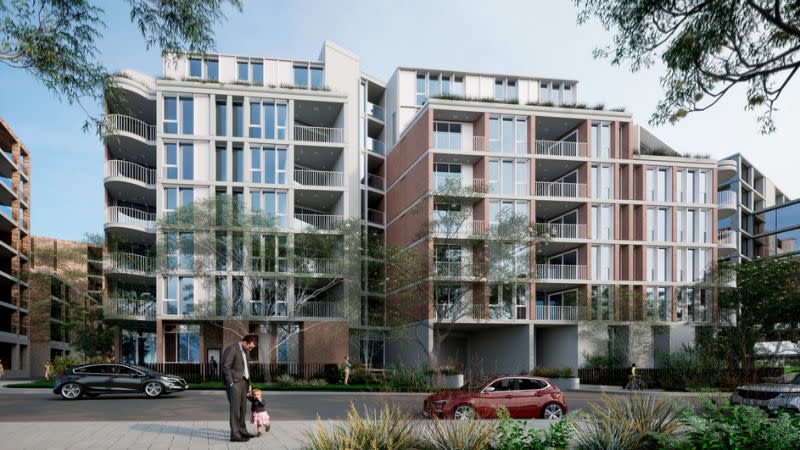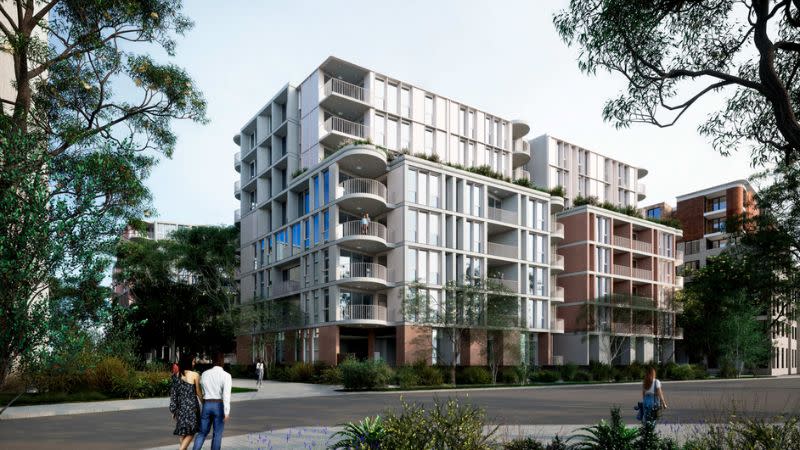Multi-generational precincts are continuing to gain traction as Corio Projects reveals its build-to-rent plans for Sydney’s Rosebery.
The developer has filed plans with the City of Sydney Council for a dual-tower build-to-rent building at 12-20 Rosebery Avenue in the inner-Sydney industrial area.
The filing comes after a design excellence competition for the project last year, won by WMK Architecture.
The 5348sq m site neighbours the site of a seniors development proposed by Corio for 22-40 Rosebery Avenue.
The plans for the 170-apartment seniors development were filed last year.
The build-to-rent proposal comprises two eight-storey buildings of 143 apartments and a retail tenancy for a total gross floor area of 11,251 square metres.
The apartments would be studio to three bedroom. Parking for 94 cars is planned.
Building A on Rosebery Avenue would have the main pedestrian entry and a lobby connecting to a pathway through communal facilities to the lobby of Building B.
▲ A rendering of the Rosebery Avenue project.
The central podium building would link the buildings and consist of amenities including co-working areas and meeting rooms, a gym, music room and utilities spaces.
The second level of the central building, which opens to a pool area, would have a communal terrace and barbecue area.
It is a considerable upscale from an initial $75-million plan.
The latest iteration of the project has been “further developed to progress to the preparation of a detailed development application for lodgement with the City,” according to the development application.
▲ Rosebery is a suburb in transition from its industrial past.
It is estimated to cost $100.6 million, according to the application to the City of Sydney Council.
The project will be on public notice until the end of April.
Corio Projects is led by Bentley Cottle and John Fallon, according to ASIC documents, with development director Jim McBirnie leading the Rosebery build-to-rent project.
Zoned mixed use, the project site is in the North Rosebery Precinct, part of the broader Green Square Urban Renewal Area.
It’s a suburb characterised by commercial and light industrial buildings “of dated architectural design”, according to Corio’s application.
But contemporary residential development is cropping up, and developers including Deicorp have been approved for projects as the locality transitions.












